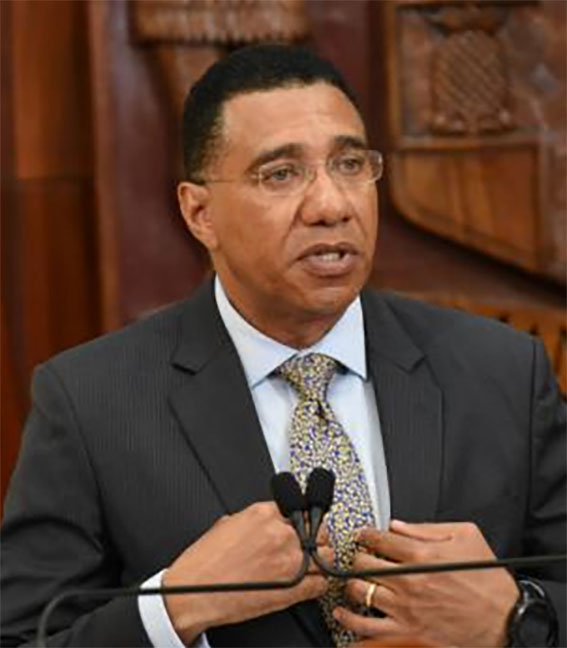– An explainer on the prime minister’s legal challenge over financial probe
(Jamaican Gleaner) The Integrity Commission has enlisted King’s Counsel and former Solicitor General Michael Hylton to lead its defence in the judicial review case filed by Prime Minister Andrew Holness.
Greg Christie, the commission’s executive director, confirmed on Friday that the law firm Hylton Powell will represent the commission and its two directors in the proceedings.
Neither the commission nor its directors have been formally served, he said in a emailed response to Sunday Gleaner questions on the Supreme Court application for administrative orders, including a judicial review, filed on September 30.
“The attorneys for the prime minister were formally notified today (Friday) by Hylton Powell that despite the fact that ‘the proceedings have been widely disseminated to the public, including the media … , it appears that no attempt has been made to serve our clients’,” Christie said.
Under the Supreme Court’s rules, the claim and the supporting affidavit for administrative orders “must be served on all persons directly affected not less than 14 days before the date fixed for the first hearing”. Up to Friday, there was no fixed date for the hearing.
Holness and his affiliated entities are being represented by Henlin Gibson Henlin.
The legal action is brought by Holness, his company Imperium Holdings Limited and two other connected entities Positive Media Solutions Limited and Positive Jamaica Foundation.
The respondents are two senior executives of the commission – Director of Information and Complaints Craig Beresford (first respondent) and Director of Investigations Kevon Stephenson (second respondent) – and the commission itself (third respondent).
Holness is contesting an IC report tabled in Parliament on September 17, 2024 that highlighted unexplained financial discrepancies in his 2021 income filings, which he claims is “unlawful” and inaccurate. The IC referred the matter to the Financial Investigations Division, citing Holness’ failure to provide expense details. It said it cannot certify his income filings.
Holness wants the Supreme Court to terminate all investigations into his financial affairs and to invalidate the report, which he says sought to impute criminal conduct. He also wants the Integrity Commission Act, passed under his administration in 2017, struck down for lacking independence.
Holness is also challenging the constitutionality of Section 14 (5) of the Corruption Prevention Act, which allows public officials to be prosecuted for illicit enrichment if they fail to explain assets disproportionate to their income. He argues that the section unfairly shifts the burden of proof on to the accused. Success on that point could affect the IC’s investigations into eight parliamentarians.
Some of the 21 declarations/orders Holness is seeking
1. Order quashing the August 30, 2024 investigation report and the September 5 special report
2. Order compelling Stephenson to recommend to the commission that Holness be exonerated in relation to the 2021 and 2022 filings.
3. Declaration that submission of the reports to Parliament was unlawful except for the sections where the Director of Corruption Prosecution Keisha Prince Kameka ruled out criminal charges for the non-disclosure of four bank accounts.
4. Declaration that there was no statement of reasonable suspicion of corruption in the reports.
5. Declaration that the IC and the two directors breached Holness and his companies’ rights to due process and privacy.
6. Declaration that the two directors acted outside the law in referring the case to the Financial Investigations Division.
7. Order that the investigation by any competent authority should end or that it would be unfair to continue investigations.
8. Declaration/order that the reports be rejected as the directors usurped the functions of the court by unlawfully or illegally piercing the corporate veil (a situation where individuals behind a company – such as its owners or shareholders – can be held personally liable for the company’s actions).
What to know about judicial reviews in Jamaica
Prime Minister Andrew Holness has applied to the Supreme Court for administrative orders, including a judicial review of actions of the Integrity Commission arising from its investigation into his financial affairs. Dr Lloyd Barnett, a constitutional law expert, takes us through some of the basics.
What is judicial review?
A review by a judge. A special process established over 150 years ago, which allows the court to review actions taken by the executive/public entities, and to declare or hold whether those actions were illegal. It could be illegal for various reasons. The major one is if it is ultra vires – an action which is not authorised by law; if it is unfair, i.e., due process was not observed.





